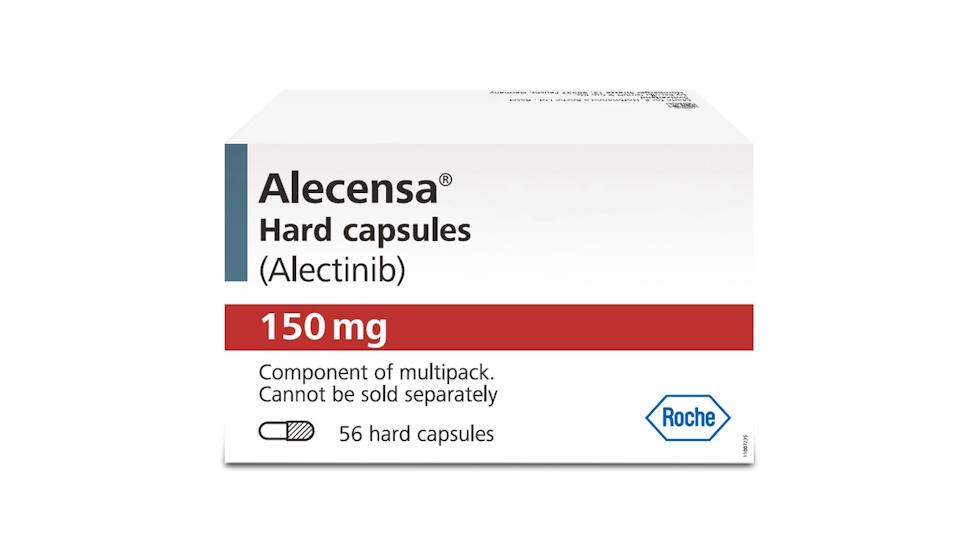NICE backs first targeted therapy for ALK+ lung cancer

Roche's Alecensa has been recommended for routine NHS use as an adjuvant treatment for ALK-positive non-small cell lung cancer (NSCLC), the first targeted therapy for this indication.
Alecensa (alectinib) is now an option for patients with stage 1b to 3a ALK-positive NSCLC who have had surgery to completely remove the tumour and are at high risk of recurrent disease, said the cost-effectiveness watchdog. It is thought that around 100 people in England will be eligible to receive the drug.
The ALK inhibitor is the first drug in the class to be approved for adjuvant use in these patients, half of whom will typically experience a relapse despite undergoing surgery and adjuvant chemotherapy.
In the phase 3 ALINA study published recently in the New England Journal of Medicine, adjuvant Alecensa achieved a 76% reduction in the risk of disease recurrence or death in early-stage NSCLC when compared to platinum-based chemo, described by the investigators as "unprecedented" in this cancer.
Alecensa is already used as a first- and second-line therapy for patients with advanced, metastatic ALK-positive NSCLC, and is a big seller for Roche with sales of CHF 1.5 billion ($1.65 billion) last year from that use.
Extending Alecensa's label to include early-stage disease gives Roche a niche free of competition from rivals like Takeda's Alunbrig (brigatinib) and Novartis' Zykadia (ceritinib).
Keytruda also cleared for surgery-spanning use
In another positive development for the lung cancer community, NICE has also given its blessing to NHS use of MSD's $25 billion immunotherapy Keytruda (pembrolizumab) alongside chemotherapy before surgery for stage 1b to 3a NSCLC, followed by Keytruda alone afterwards.
The recommendation is based on the KEYNOTE-671 trial which revealed that event-free survival (EFS) was 62.4% for the group given Keytruda before and after surgery after a median follow-up period of just over 25 months, compared to 40.6% for patients who received placebo after surgery.
The aim of surgery in these NSCLC patients is curative, but between a third and half of them will experience recurrence after surgery and need additional lines of treatment. NICE estimates that there are around 5,000 patients in England who could benefit from the use of Keytruda in this way.
AstraZeneca recently claimed approval in the US for Imfinzi (durvalumab) as neoadjuvant/adjuvant therapy for stage 2a to 3b NSCLC while Bristol-Myers Squibb also has positive phase 3 results with Opdivo (nivolumab) in this setting.
"I am delighted that we have been able to recommend these two lung cancer treatments," commented Helen Knight, director of medicines evaluation at NICE.
"Both treatments are designed to reduce the risk of cancer returning after surgery and demonstrate NICE's commitment to getting the best care to patients fast and ensuring value for the taxpayer."












